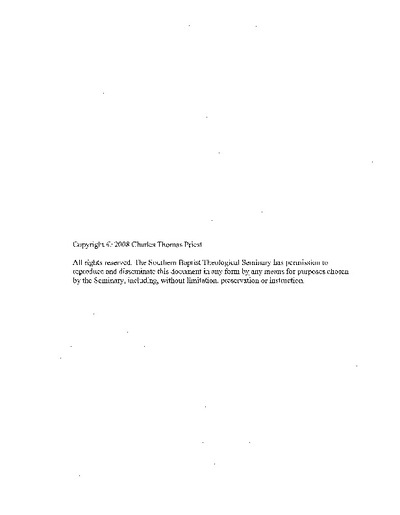| dc.contributor.advisor | Crookshank, Esther R. | |
| dc.contributor.author | Priest, Charles Thomas | |
| dc.date.accessioned | 2010-01-08T17:00:34Z | |
| dc.date.available | 2010-01-08T17:00:34Z | |
| dc.date.created | 2008-04-29 | |
| dc.date.issued | 2008-04-29 | |
| dc.identifier.other | THESES D.M.A. .P933r | |
| dc.identifier.uri | http://hdl.handle.net/10392/484 | |
| dc.description.abstract | The dissertation examines regionalism in selected musical works of Charles Faulkner Bryan (1911-1955). The composer's upbringing and cultural heritage are examined within the context of the history and traditions of the Upper Cumberland region of Tennessee. The selected scores are examined for textual, musical, and dramatic elements that reflect Bryan's regionalism. Each score is analyzed to see how Bryan incorporated these elements into his compositional technique and dramaturgy. This study codifies those elements and demonstrates their significance in light of Bryan's rural southern heritage.
Chapter 1 surveys the existing literature and primary sources on Bryan. The methodology involves comparisons of Bryan's life and music with other American composers like Charles Ives and Aaron Copland. Important sources used for this study were Bryan's scores and personal correspondence from the Charles Faulkner Bryan Collection of the Tennessee State Library and Archives in Nashville and the library at Tennessee Technological University (Cookeville).
Chapter 2 is a biographical sketch of Bryan's life, from his birth in McMinnville, Tennessee, through his career as a composer and music educator. Chapter 3 presents a summary of Tennessee's history, with particular attention to the Upper Cumberland region where Bryan lived.
Chapter 4 examines Bryan's Rebel Academy (1939), an operetta Bryan composed for use with his students at Tennessee Polytechnic Institute in Cookeville. Chapter 5 examines White Spiritual Symphony (1940) and Bryan's sources from both print and oral traditions for the white spirituals used in this work. Chapter 6 examines The Bell Witch (1947), a secular cantata based on a southern legend of the supernatural. Chapter 7 examines Cumberland Interlude: 1790 (1947), a cantata centered on the character of Andrew Jackson. Chapter 8 examines Bryan's largest work, the two-act opera Singin' Billy (1952). It is based on a fictional episode in the life of nineteenth-century singing-school master William Walker, compiler of Southern Harmony . Chapter 9 summarizes the dissertation and draws conclusions on the role of regionalism in the selected musical works of Bryan. | en_US |
| dc.language.iso | en_US | en_US |
| dc.subject | Bryan, Charles Faulkner, 1911-1955 | en_US |
| dc.subject | Bryan, Charles Faulkner, 1911-1955. Works | en_US |
| dc.subject | Music--Tennessee | en_US |
| dc.title | Regionalism in selected musical works of Charles Faulkner Bryan (1911-1955) | en_US |
| dc.type | Thesis | en_US |
| dc.publisher.institution | Southern Baptist Theological Seminary | en_US |

